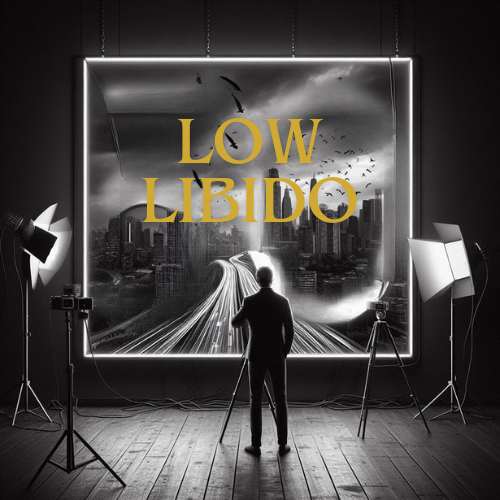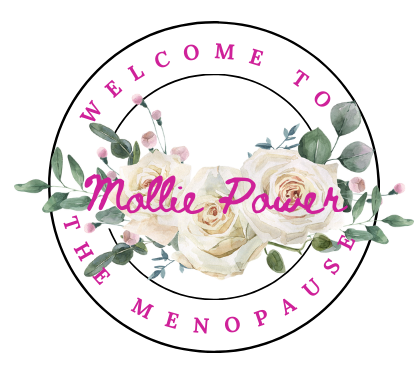
Overcoming Low Libido in Men!
Embarking on a journey to peak vitality and reclaiming the zest for life! In the realm of men’s health, low libido, often shadowed by dwindling testosterone levels, can cast a cloud over both the physical and emotional dimensions of well-being. Let us unravel the mystery together – exploring the causes, decoding the symptoms, and discovering effective strategies to reignite the flame of vitality!
Get ready to dive into a wealth of knowledge that not only addresses the nuances of low libido but also empowers you with actionable insights. Your path to renewed Vigor and heightened pleasure starts here! Do not just read, embark on a transformative journey with us as we unlock the solutions for Low Libido Due to Low Testosterone in Men.
#MensHealthRevival #LibidoLiberation #TestosteroneTransformation
Causes of Low Libido Due to Low Testosterone:
Testosterone Decline:
Reduced testosterone levels can significantly impact sexual desire.
Testosterone, a key male sex hormone produced primarily in the testicles, plays a crucial role in maintaining libido. As men age, there is a natural decline in testosterone production, which can lead to a reduction in sexual desire and performance. This decline is a normal part of the ageing process but may require attention for those experiencing noticeable changes in libido.
Ageing:
Testosterone naturally decreases with age, influencing libido.
Age-related changes, including a gradual decrease in testosterone levels, can affect sexual function and desire. While ageing is a factor in this decline, it is essential to recognise that not all men experience a significant impact on libido. Lifestyle factors, overall health, and genetic predispositions also play roles in how ageing affects sexual well-being.
Chronic Illness:
Conditions like diabetes and obesity may contribute to hormonal imbalances impacting libido.
Chronic illnesses, particularly those associated with metabolic disorders like diabetes and obesity, can disrupt hormonal balance. These conditions may lead to lower testosterone levels, adversely affecting sexual desire and performance. Managing and treating the underlying chronic illness becomes crucial for restoring hormonal harmony and improving libido.
Medications:
Certain medications can negatively influence libido.
Some medications, such as certain antidepressants, anti-hypertensives, and hormonal treatments, may have side effects that impact sexual desire. It is important for individuals to communicate openly with healthcare providers about any observed changes in libido while on medications. Adjustments or alternative medications may be considered to minimise these effects.
Psychological Factors:
Stress, anxiety, and depression can affect sexual desire.
The mind-body connection is integral to sexual health. Psychological factors like chronic stress, anxiety disorders, and depression can contribute to a decrease in libido. Addressing these issues through counselling, therapy, or stress management techniques can positively impact mental well-being and, consequently, sexual desire.
Understanding these causes allows individuals and healthcare providers to develop tailored strategies for addressing low libido associated with low testosterone. A comprehensive approach that considers both physical and psychological factors ensures a more effective and holistic solution for improving sexual well-being.
Symptoms of Low Libido:
Decreased Interest in Sex: Noticeable decline in the desire for sexual activity is often one of the first indicators of low libido. Individuals may find themselves less interested or motivated to engage in sexual experiences that were previously enjoyable. This decline can be gradual and may impact both the frequency and intensity of sexual desire.
Erectile Dysfunction: Difficulty achieving or maintaining an erection is a significant symptom associated with low libido. While not solely caused by low testosterone, hormonal imbalances can contribute to erectile dysfunction. This may result in challenges in achieving or sustaining an erection, impacting overall sexual satisfaction.
Reduced Spontaneity: A lack of spontaneous sexual thoughts or fantasies can signify diminished libido. Spontaneity is a natural and healthy aspect of sexual desire, and its reduction may indicate underlying hormonal or psychological factors affecting the individual’s responsiveness to sexual stimuli.
Mood Changes: Feelings of frustration, irritability, or even depression often accompany low libido. Hormonal fluctuations, particularly low testosterone levels, can influence mood regulation. The emotional impact can extend beyond the individual, affecting interpersonal relationships and overall quality of life.
Understanding these symptoms is crucial for early detection and intervention. It is essential to recognise that low libido is a multifaceted issue influenced by both physiological and psychological factors. Seeking professional guidance can help pinpoint the underlying causes and tailor appropriate interventions for a comprehensive approach to revitalizing sexual well-being. Addressing both the physical and emotional aspects of low libido is key to restoring a satisfying and fulfilling sexual life.
Ways to Help Improve Libido:
Consult with a Healthcare Professional: A crucial first step in addressing low libido is seeking guidance from a healthcare professional. A thorough assessment by a qualified provider can uncover potential underlying causes, ensuring an accurate diagnosis and personalised treatment plan.
Testosterone Replacement Therapy (TRT): In cases where clinically low testosterone levels are identified, Testosterone Replacement Therapy (TRT) may be recommended. This medical intervention involves supervised administration of testosterone to restore hormonal balance and address associated symptoms, including low libido.
Regular Exercise: Engaging in regular physical activity has been shown to have positive effects on testosterone levels. Both strength training and cardiovascular exercise contribute to hormonal balance and overall well-being. Exercise also promotes blood circulation, positively impacting sexual function.
Healthy Diet: Nutrition plays a crucial role in supporting hormonal health. A balanced diet rich in essential nutrients, particularly zinc and vitamin D, can contribute to optimal testosterone production. Foods like nuts, seeds, lean meats, and leafy greens are beneficial additions to support hormonal balance.
Adequate Sleep: Quality sleep is essential for regulating hormonal balance, including testosterone levels. Prioritising sufficient and restful sleep supports overall health and contributes to improved sexual well-being.
Stress Management: Chronic stress can negatively impact libido and hormonal balance. Incorporating stress-reduction techniques such as meditation, mindfulness practices, or yoga can be effective in managing stress levels and promoting overall emotional well-being.
Counselling or Therapy: Psychological factors can significantly influence libido. Seeking counselling or therapy can address underlying emotional or psychological issues that may contribute to low libido, fostering a comprehensive approach to sexual well-being.
Open Communication: Maintaining open communication with a partner is crucial. Discussing concerns and feelings creates a supportive environment and strengthens emotional intimacy. Partners can work together to understand and address any challenges related to libido, promoting a collaborative and supportive approach to improving overall sexual health.

Things Men Should and Shouldn’t Do:
Should:
Seek Professional Advice: Consulting with a healthcare professional is crucial for a comprehensive evaluation of your health. A qualified healthcare provider can conduct thorough assessments, including hormone level tests, to accurately diagnose the underlying causes of low libido. This professional guidance ensures that any interventions are evidence-based and tailored to your specific health needs.
Prioritise Overall Health: Addressing low libido involves prioritising overall health. This encompasses physical, mental, and emotional well-being. Adopting a comprehensive approach involves maintaining a healthy lifestyle through balanced nutrition, regular exercise, and sufficient sleep. These factors contribute not only to hormonal balance but also to general health and vitality.
Maintain Open Communication: Open communication with your partner is essential when dealing with changes in libido. Discussing concerns, feelings, and any challenges related to intimacy fosters mutual support and understanding. It can also contribute to a stronger emotional connection and the creation of a supportive environment as you navigate the journey towards revitalizing your sexual well-being together.
Explore Treatment Options: Being open to exploring various treatment options, both medical and lifestyle-related, is crucial. Healthcare providers may recommend interventions such as hormone replacement therapy (HRT), lifestyle adjustments, or a combination of both. Understanding and being receptive to these options can empower you to make informed decisions about your health and well-being.
Should not:
Self-Diagnose or Self-Medicate: Attempting to self-diagnose or self-prescribe testosterone supplements without proper medical guidance poses significant risks. Testosterone is a crucial hormone, and its levels should be assessed by a qualified healthcare professional through proper diagnostic procedures. Self-diagnosis may lead to inaccurate assessments, and self-medication can result in adverse effects or complications. It is essential to consult a medical professional to determine if low testosterone is the underlying cause of low libido and to receive appropriate guidance on any potential treatments.
Ignore Symptoms: Persistent changes in libido should not be ignored, as they could be indicative of an underlying health issue, including low testosterone levels. Ignoring such symptoms may lead to prolonged challenges in sexual well-being and overall health. Seeking professional advice is crucial in identifying the root cause of low libido and developing an effective treatment plan tailored to individual needs.
In summary, the post emphasises the importance of seeking professional guidance to accurately diagnose and address low libido due to low testosterone. It encourages individuals not to attempt self-diagnosis or self-medication, underscores the significance of addressing symptoms promptly, and advocates for a comprehensive approach involving medical, lifestyle, and emotional considerations under the supervision of healthcare professionals.
